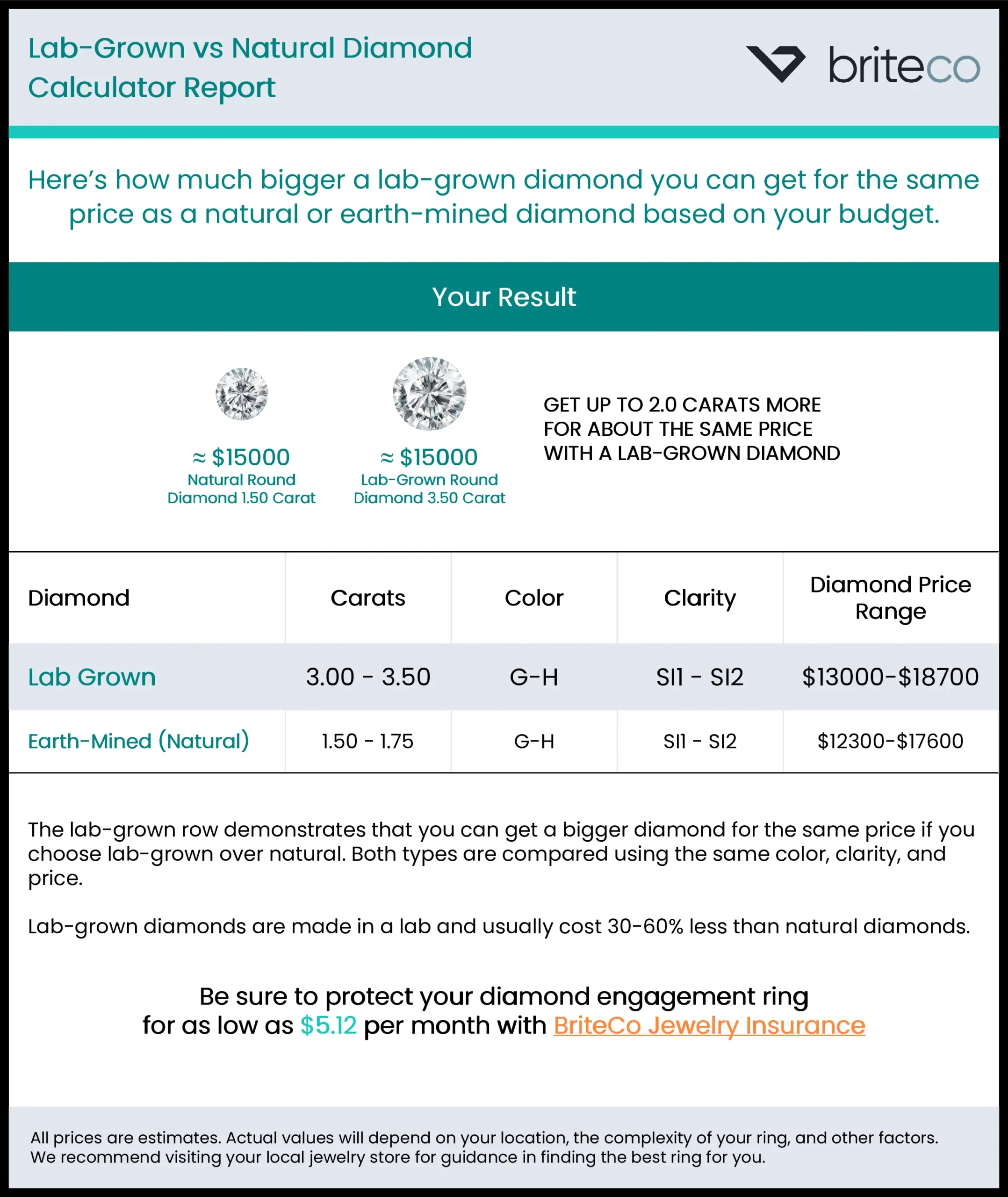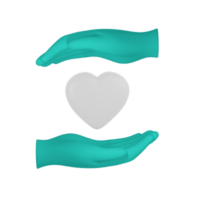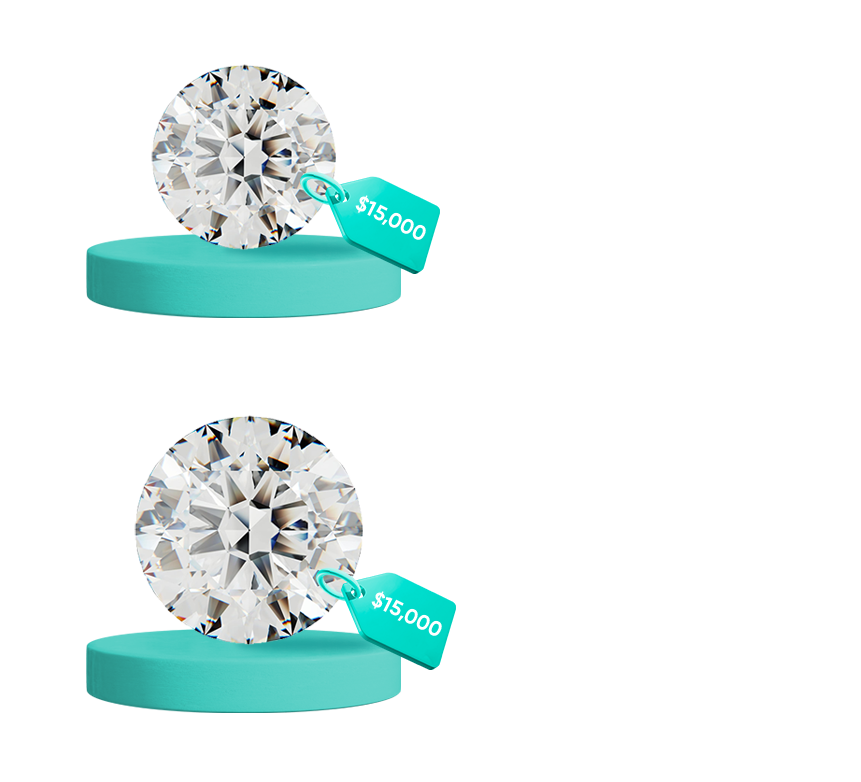As Seen In…






Try this FREE Lab-Grown Diamond Calculator
A tool designed to help you understand the value of lab-grown diamonds based on your preferences.
Your Report Includes:
- Differences in carat size between a lab-grown diamond compared to a natural diamond for the same price range
- Side by side comparison to see how much larger a lab-grown diamond you can get compared to a natural diamond

To Get Started:
- Set your diamond budget range and pick your diamond shape.
- Get a report in minutes that shows the size difference between a lab-grown and a natural diamond within your price range.
With this report, you can make a more informed decision about what kind of diamond might best fit your tastes and budget. Lab-grown and natural diamond comparison based on equivalent color and clarity.
Should you buy a Lab Grown or Natural Diamond for your engagement ring?
The Pros and Cons of Lab Grown and Natural Diamonds
Natural Diamond
- Maintain higher resale value
- Rarity factor - a finite supply exists in the world
- Preferred by partner due to stone’s significance and million year history
- More costly
- Identical physical properties compared to lab grown
- Environmental impact from earth mined diamonds
Lab Grown
- 30%-50% less cost
- More sustainable, using less energy and resources than earth mined
- Conflict-free - natural can occasionally come from conflict zones
- Potential metal inclusions
- Occasional blue tint
- No constraint on supply and a history of losing value over time
Why Choose Lab-Grown Diamonds?

Lab-Grown Diamonds typically cost 40% to 50% less than natural diamonds, offering a budget-friendly option without compromising on beauty or quality.

Crafted with precision, Lab-Grown Diamonds share identical physical and chemical properties with natural diamonds, making them almost indistinguishable.

For some people, choosing Lab-Grown Diamonds means supporting responsible and ethical practices in the diamond industry.

The innovative technology behind Lab-Grown Diamonds allows for precise control and customization, eliminating most imperfections and catering to individual preferences

With a rise in demand and acceptance, Lab-Grown Diamonds are becoming a preferred choice for many. In 2020, the global market for lab-produced diamonds stood at $1.6 billion, with projections reaching $5 billion by the year 2027.
Frequently Asked Questions
What are Lab-Grown Diamonds?
Lab-Grown Diamonds are real diamonds produced in a lab using HPHT and CVD processes. They share identical properties with natural diamonds, including visual, chemical, and physical elements. The main difference is their origin. Both types of diamonds, natural and lab-grown diamonds can be GIA certified diamonds (GIA is an acronym for the Gemological Institute of America). GIA tests and grades diamonds based on the 4 C's: carat weight, cut, color, and clarity.
How are Lab-Grown Diamonds made?
Lab-Grown Diamonds are created using High-Pressure High-Temperature (HPHT) and Chemical Vapor Deposition (CVD) methods, allowing precise control over diamond clarity, quality and appearance.
Are Lab-Grown Diamonds more affordable than natural diamonds?
Yes, lab-grown diamonds are sold for a fair price and typically cost 50% less than natural diamonds, making them a popular choice for those seeking affordability without compromising quality.
Do Lab-Grown Diamonds hold their value?
Lab-Grown Diamonds may not hold their value in the same way as natural diamonds. While natural diamonds typically retain around 25-50% of their value, lab-grown diamonds may have little to no resale value, which is a factor to consider when looking at a diamonds retail price.
Are Lab-Grown Diamonds considered eco-friendly?
Recently, the environmental effects of lab-made diamonds have been debated. While some highlight traditional mining's impact on the environment and labor practices, others point to the energy-intensive production of lab diamonds. In 2018, the Federal Trade Commission revised terms, omitting "eco-friendly" for lab diamonds.
Can I insure my Lab-Grown Diamond?
Yes, Lab-Grown Diamonds can be insured, and BriteCo™ offers insurance policies to protect your investment if lost, stolen, or damaged.
Where can I buy Lab-Grown Diamonds?
Lab-Grown Diamonds are available both online and in retail stores. It's essential to choose reputable sellers who adhere to quality standards and ethical practices.
